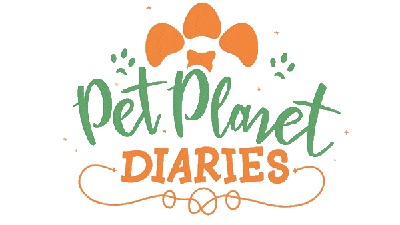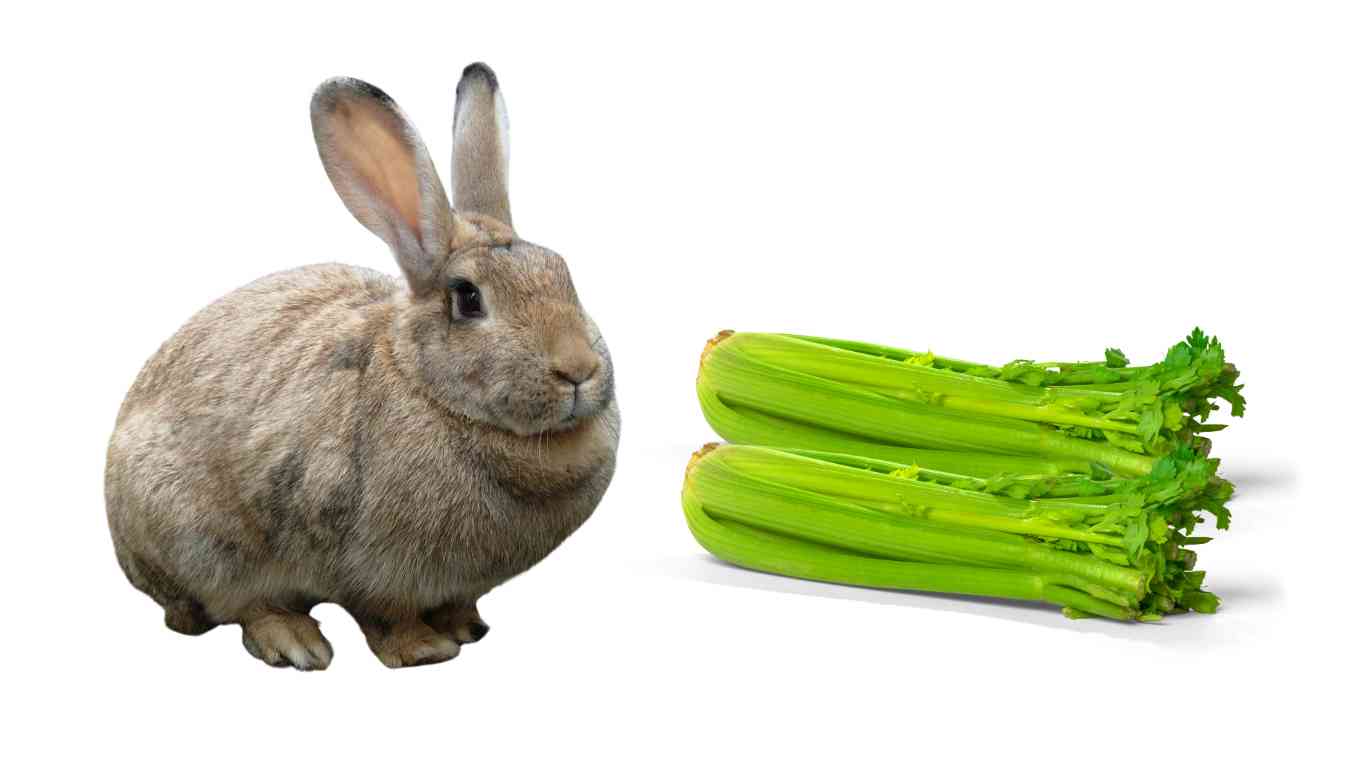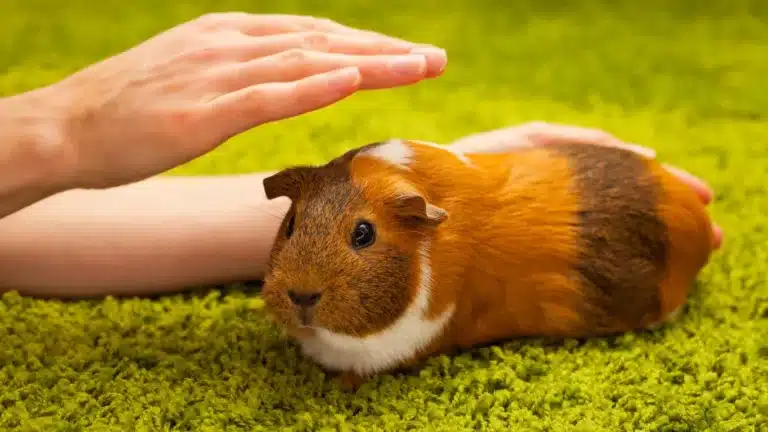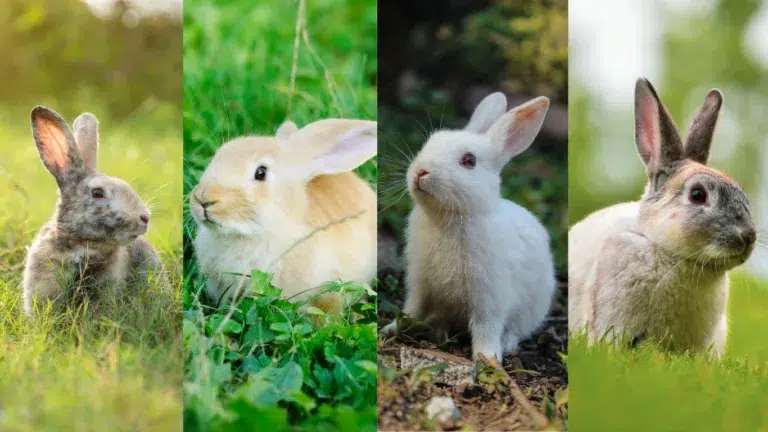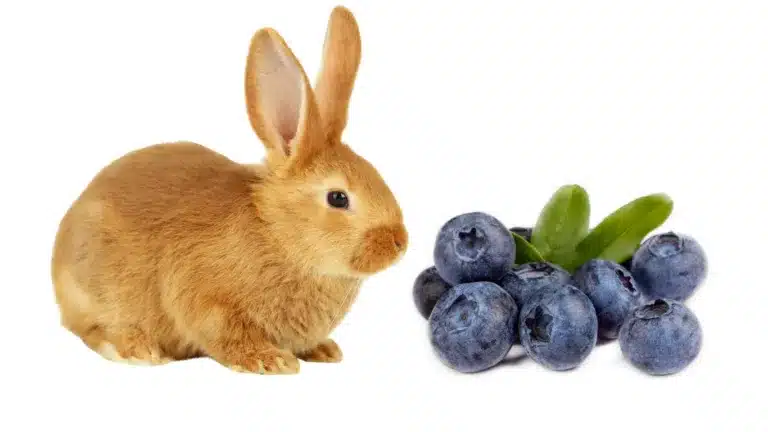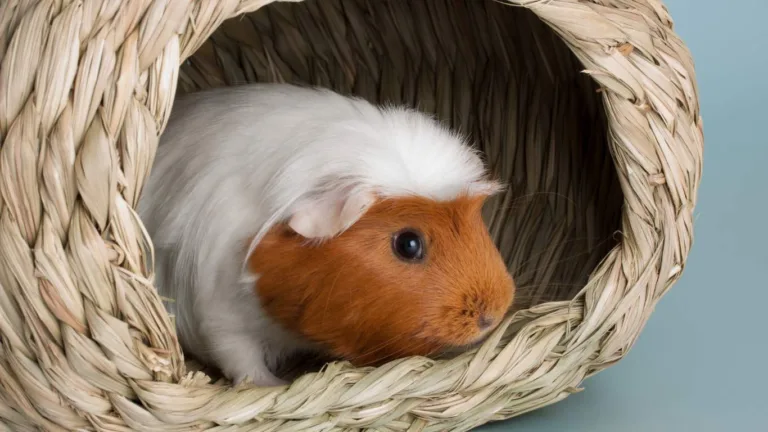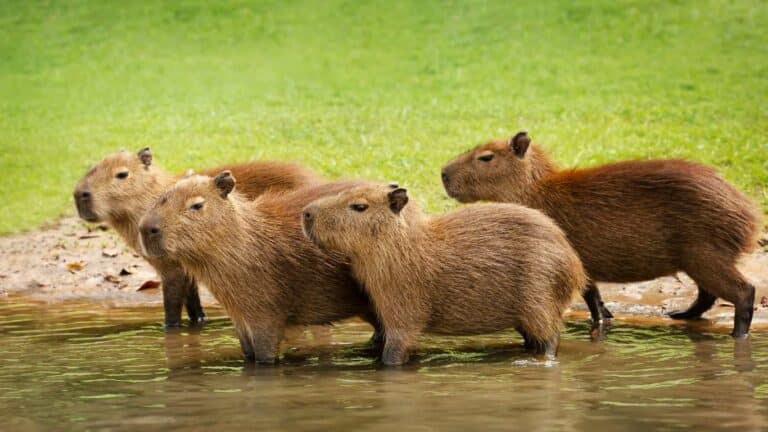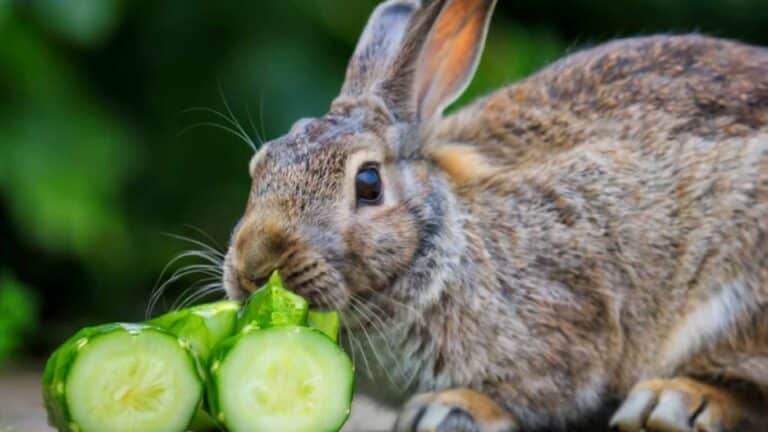Rabbits are adorable and lovable pets that bring joy to our lives. As responsible rabbit owners, it’s crucial to provide them with a well-balanced diet to ensure their health and happiness. While hay is the main component of a rabbit’s diet, incorporating fresh foods like fruits and vegetables can provide additional nutrients, textures, and tastes. If you’ve been wondering ‘Can Rabbits Eat Celery? Expert Advice on Incorporating Celery into a Rabbit’s Diet’, you’ve come to the right place.
Celery, with its crunchy texture and refreshing taste, is indeed safe for rabbits to consume. In fact, this crisp vegetable has an increased moisture content, which promotes kidney and bladder health in rabbits. Adding celery to their diet, under the keyword “Can Rabbits Eat Celery”, can provide them with the necessary hydration and essential vitamins.
However, it’s important to note that not all fruits and vegetables are suitable for rabbits. Some can cause digestive issues or even be toxic. Therefore, it’s crucial to have a clear understanding of what foods are safe for rabbits and what should be avoided.
Rabbit’s Digest: Essential Points:
Vegetables Safe for Rabbits
Rabbits can enjoy a diverse range of vegetables as part of a healthy diet. Including vegetables in their meals not only adds variety but also provides essential nutrients. Leafy greens and herbs are particularly beneficial for rabbits. Here is a list of some safe vegetables that rabbits can eat:
| Vegetable | Nutritional Benefits |
|---|---|
| Alfalfa sprouts | High in fiber, vitamins, and minerals |
| Artichoke | Rich in antioxidants and dietary fiber |
| Arugula | Packed with calcium, vitamins A and K |
| Asparagus | Great source of vitamins A, C, E, and K |
| Basil | Contains antioxidants and essential oils |
| Beet greens | High in iron, calcium, and vitamins A and C |
| Bell peppers | Rich in vitamin C and beta-carotene |
| Bok choy | Packed with vitamins A, C, and K, as well as calcium and iron |
| Broccoli | Provides vitamins A, C, and K, and folate |
| Brussels sprouts | Contains antioxidants, fiber, and vitamins C and K |
| Cabbage | Rich in vitamin K and dietary fiber |
| Carrots | High in beta-carotene, vitamin A, and fiber |
| Celery | Provides hydration and dietary fiber |
| Chicory | Rich in inulin, a prebiotic that supports gut health |
| Cilantro | Contains antioxidants and essential oils |
| Collard greens | High in calcium, vitamin A, and fiber |
| Cucumber leaves | Provides hydration and dietary fiber |
| Dandelion greens | Rich in vitamins A, C, and K, and calcium |
| Dill leaves | Contains antioxidants and essential oils |
| Edible flowers | Delightful treats rich in antioxidants |
| Endive | Low in calories, rich in vitamins A and K, and fiber |
| Escarole | Provides folate, vitamins A and K, and fiber |
| Fennel | Rich in fiber, vitamin C, and potassium |
| Flat edible Chinese pea pods | High in fiber, vitamins A and C, and iron |
| Frisée lettuce | Offers vitamins A and C, folic acid, and fiber |
| Kale | Loaded with vitamins A, C, and K, and calcium |
| Mache | Rich in vitamins A and C, and iron |
| Mint | Contains antioxidants and essential oils |
| Mustard greens | Packed with fiber, vitamins A, C, and K, and calcium |
| Parsley | High in vitamin C, iron, and folic acid |
| Radicchio | Offers vitamins A, C, and K, and iron |
| Radish tops | Contain vitamins A, C, and K, and fiber |
| Red or green leaf lettuce | Rich in vitamins A and K, and folic acid |
| Romaine lettuce | Provides vitamins A and K, and folic acid |
| Spinach | High in iron, vitamins A and C, and fiber |
| Spring greens | Packed with vitamins A, C, and K, and folic acid |
| Summer squash | Low in calories, high in vitamins and minerals |
| Swiss chard | Offers vitamins A, C, and K, and iron |
| Turnip greens | Rich in vitamins A, B, and C, and calcium |
| Watercress | Packed with vitamins A, C, and K, and calcium |
| Wheatgrass | Nutrient-rich, aids digestion |
Remember to wash all vegetables thoroughly before feeding them to your rabbit. It’s essential to provide a varied diet and introduce new vegetables gradually. Consult with a veterinarian or rabbit nutrition expert for personalized dietary recommendations for your furry friend.
Fruits Safe for Rabbits
Rabbits can also safely consume a variety of fruits. Including fruits in your rabbit’s diet can provide them with additional nutrients and offer a sweet treat. However, it’s important to choose the right fruits and prepare them properly to ensure your rabbit’s safety and well-being. Here are some safe fruits for rabbits:
| Fruit | Benefits |
|---|---|
| Apples | Rich in vitamins A and C, and high in fiber. |
| Apricots | Contain minerals such as potassium and vitamin A. |
| Blueberries | Loaded with antioxidants and beneficial nutrients. |
| Cherries | Provide vitamins A and C, as well as antioxidants. |
| Currants | Rich in vitamin C and antioxidants. |
| Kiwis | High in vitamin C and fiber. |
| Melons | Excellent source of hydration and vitamins A and C. |
| Oranges | Full of vitamin C and provide hydration. |
| Papayas | Enriched with vitamins A and C, as well as fiber. |
| Peaches | Contain vitamins A and C, and dietary fiber. |
| Pears | High in fiber and provide dietary benefits. |
| Pineapples | Rich in vitamin C and contain bromelain, an enzyme beneficial for digestion. |
| Plums | Provide vitamins A and C, fiber, and antioxidants. |
| Raspberry leaves | Help improve overall digestion and can be used as a natural remedy. |
| Star fruit | Contain essential nutrients and are high in fiber. |
| Strawberries | Packed with vitamin C and antioxidants. |
When offering fruits to your rabbit, it’s crucial to wash them thoroughly and remove any seeds, stems, or stones. Additionally, remember to introduce new fruits gradually to ensure your rabbit doesn’t have any adverse reactions.
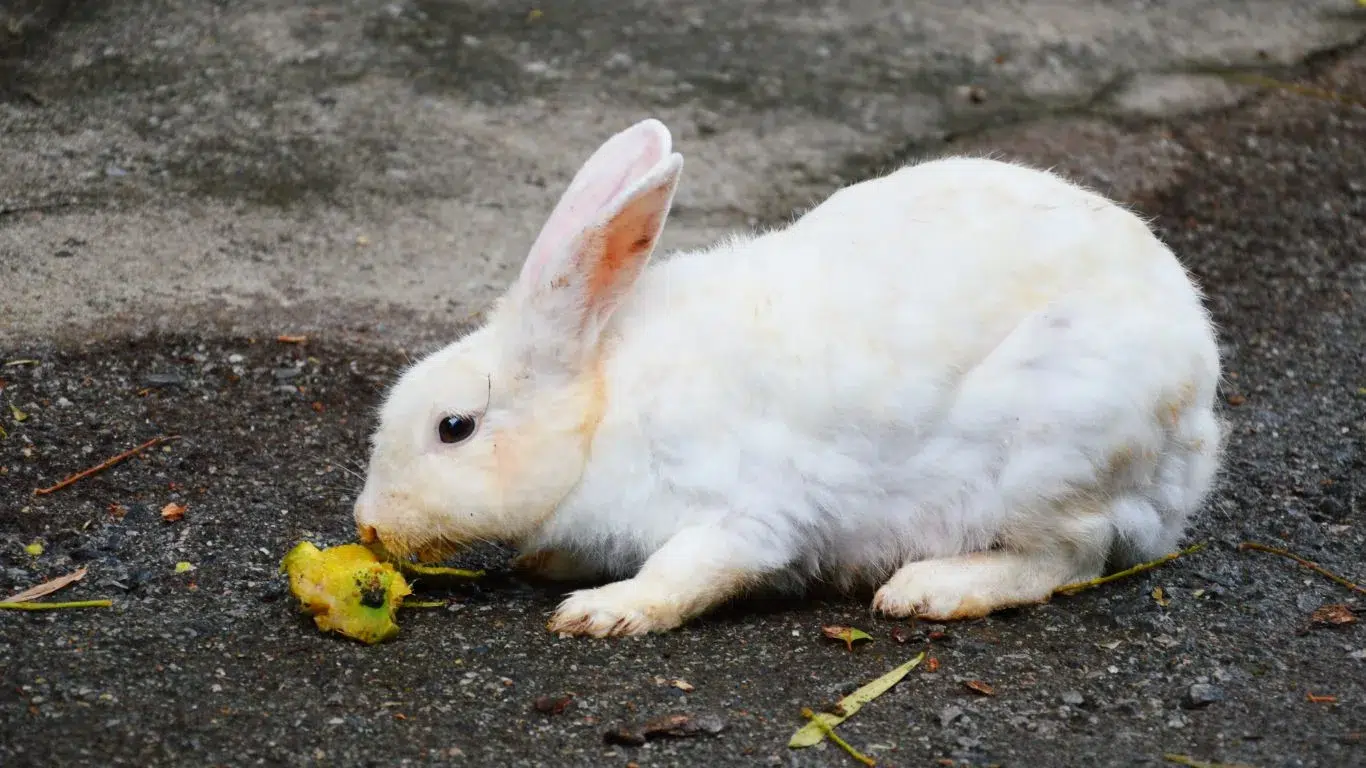
Fruits and Vegetables Safe to Serve in Moderation
While incorporating fruits and vegetables into your rabbit’s diet is important, it’s equally essential to serve them in moderation. Some fruits and vegetables can be given to your rabbit in limited amounts to ensure a balanced and healthy diet. Here are a few examples:
| Fruits | Portion Size |
|---|---|
| Bananas | Limit due to sugar content |
| Chard | Small quantities are acceptable |
Additionally, a few flowering vegetables like cauliflower and broccoli should also be offered in limited quantities to prevent gas. While the stems and leaves of broccoli can be included in small amounts, it’s crucial to monitor portion sizes and not overindulge your rabbit in non-leafy green vegetables and fruits. This balanced approach to serving fruits and veggies will help maintain your rabbit’s overall health and well-being.
Why is moderation important?
Feeding your rabbit excessive amounts of fruits and non-leafy green vegetables can lead to digestive issues and an imbalance in their diet. It’s essential to provide a varied diet that includes a proper balance of hay, fresh water, pellets, and treats. Monitoring portion sizes ensures that your rabbit receives the necessary nutrients without overindulging in certain foods.
Unsafe Fruits and Vegetables for Rabbits
When it comes to your rabbit’s diet, there are certain fruits and vegetables that should never be included. It’s essential to be aware of these unsafe options to ensure your rabbit’s health and well-being. Avoiding these foods will help prevent potential health issues and keep your furry friend happy and thriving.
“The health and safety of your rabbit should always be a top priority. Avoiding unsafe fruits and vegetables is crucial to maintaining their well-being.”.
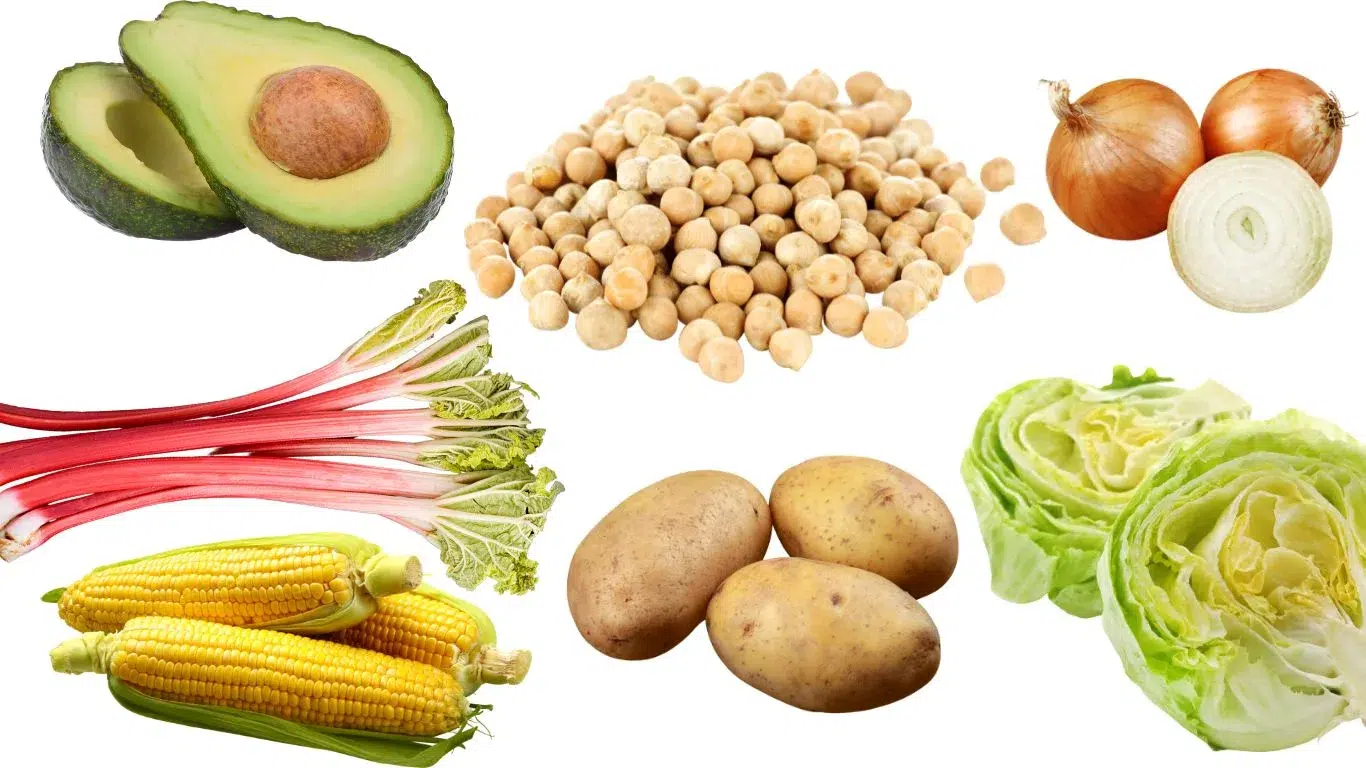
Foods to Avoid for Rabbits:
- Avocado: Avocado is toxic to rabbits and can cause severe illness or even be fatal. It’s important to keep this fruit away from your rabbit at all costs.
- Corn: Corn can lead to gastrointestinal stasis or blockage in rabbits. It’s best to avoid feeding your rabbit corn in any form.
- Legumes: Legumes such as beans and peas are high in carbohydrates, which can cause obesity and digestive issues in rabbits. It’s advisable to steer clear of these foods to maintain a balanced diet for your furry friend.
- Iceberg Lettuce: Iceberg lettuce contains lactucarium, a substance that is harmful to rabbits. It’s recommended to choose other leafy greens instead.
- Onions, Potatoes, and Rhubarb: These vegetables should be avoided as they can be toxic to rabbits and pose serious health risks.
- Wild-Grown Mushrooms: Wild-grown mushrooms can be poisonous to rabbits. It’s vital to prevent your rabbit from ingesting them.
By avoiding these unsafe fruits and vegetables, you can ensure that your rabbit’s diet is healthy and nutritious. Remember to provide a balanced diet that includes safe options and consult with a veterinarian for personalized advice and guidance.
Unsafe Fruits and Vegetables for Rabbits:
| Fruits | Vegetables |
|---|---|
| Avocado | Onions |
| Apricots | Potatoes |
| Cherries | Rhubarb |
| Oranges | Wild-Grown Mushrooms |
Remember, a well-informed diet plays a crucial role in ensuring your rabbit’s overall health and longevity. By avoiding unsafe fruits and vegetables, you are taking significant steps towards providing your furry friend with a safe and healthy diet.
How to Integrate Fruits and Vegetables into Your Rabbit’s Diet
Introducing fresh produce to your rabbit’s diet is a great way to provide them with additional nutrients and variety. However, it’s important to do so gradually and with care to ensure their digestive system can adjust. Here’s a step-by-step plan to help you incorporate fruits and vegetables into your rabbit’s diet:
- Start with grass hay for at least 2 weeks: Before introducing any new foods, make sure your rabbit has a strong foundation of grass hay in their diet. This will help prepare their digestive system.
- Slowly introduce leafy greens: Begin by offering one type of leafy green vegetable at a time, such as spinach or kale. Introduce a new green every 3 days to monitor your rabbit’s reaction and ensure they tolerate it well.
- Opt for a variety of greens: Aim to include at least three different types of leafy greens in your rabbit’s daily diet. This will provide them with a range of nutrients and flavors.
- Wash and prepare fruits and vegetables: Before serving fruits and vegetables to your rabbit, be sure to wash them thoroughly to remove any dirt or pesticides. Cut them into appropriate-sized pieces for your rabbit to easily consume.
- Remove excess after a few hours: Fruits and vegetables should only be left in your rabbit’s enclosure for a few hours. After that time, remove any uneaten portions to prevent spoilage.
Here are some additional tips to keep in mind when introducing fruits and vegetables to your rabbit:
- Choose organic produce whenever possible to minimize exposure to pesticides.
- Rotate the types of leafy greens you offer to ensure a diverse diet.
- Offer smaller pieces of fruits and vegetables to prevent choking hazards.
- Consider your rabbit’s age and consult with a veterinarian for specific dietary recommendations.
- Introduce one new food at a time to monitor your rabbit’s reaction and identify any potential allergies or sensitivities.
- Always provide fresh, clean water for your rabbit to stay hydrated.
- Ensure your rabbit has access to grass hay and other appropriate food options at all times.
- Provide chew toys to help maintain healthy teeth and encourage natural chewing behavior.
Remember, it’s important to consult with a veterinarian experienced in rabbit care to develop a well-balanced diet plan tailored to your individual rabbit’s needs.
What Do Wild and Pet Rabbits Eat?
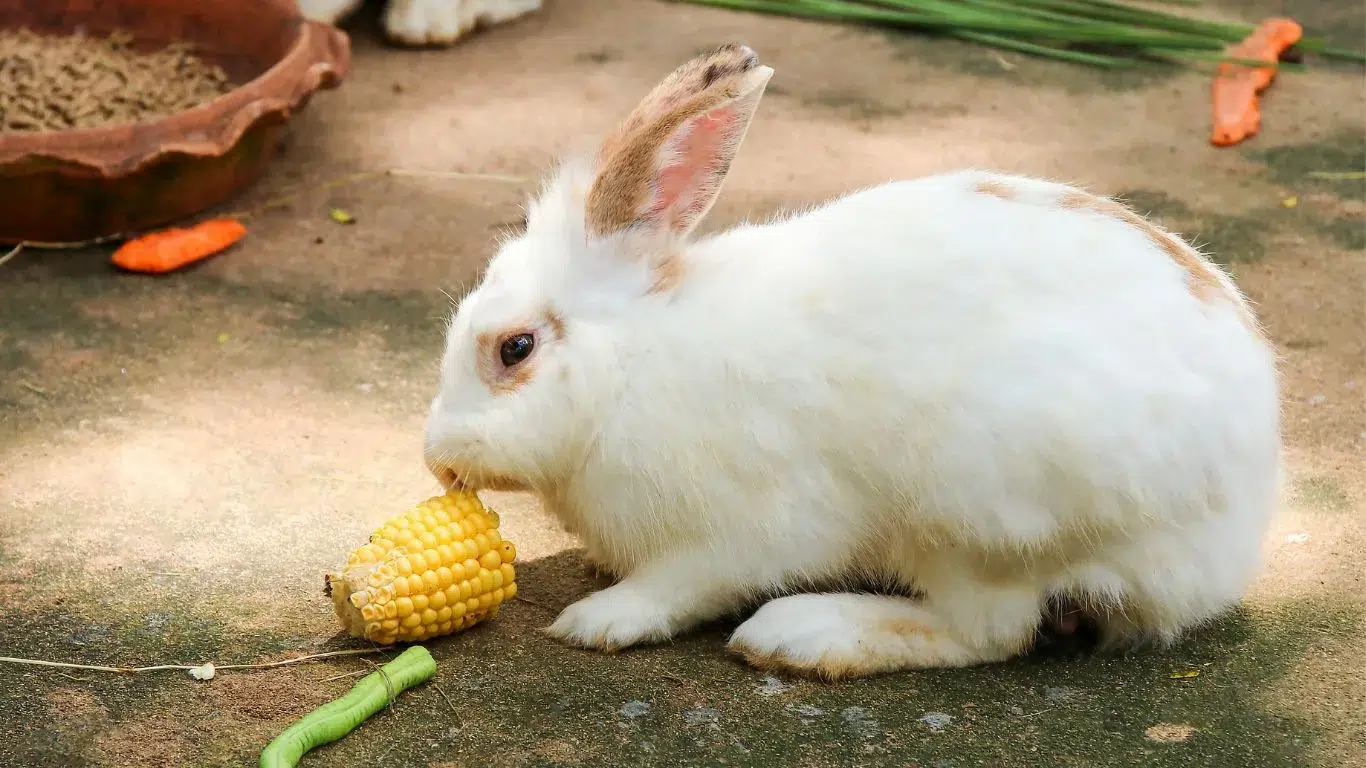
In the wild, rabbits have a diverse diet that consists primarily of hay, which accounts for 80-90% of their food intake. Hay provides important fiber for their digestive system and helps maintain healthy teeth. Additionally, wild rabbits consume grasses, weeds, and a variety of vegetables and flowers when available.
When it comes to pet rabbits, their diet should mimic that of their wild counterparts. Hay should be the main component of their daily meals, making up the majority of their diet. It is essential to provide good quality hay, such as timothy or orchard grass, to ensure they receive the necessary fiber and nutrients.
Furthermore to hay, pet rabbits can also enjoy a variety of vegetables, pellets, and occasional treats. Vegetables such as leafy greens, bell peppers, and carrots can be introduced in moderation to provide additional vitamins and minerals. Pellets should be fed sparingly as they can be high in calories and low in fiber.
Here is a breakdown of the recommended daily diet for a pet rabbit:
| Food | Portion |
|---|---|
| Hay | Unlimited |
| Vegetables | 1-2 cups |
| Pellets | 1/8 cup |
| Treats | Occasional |
It’s important to provide fresh water daily, using a bowl rather than a water bottle, as rabbits prefer to drink from a bowl. Avoid feeding foods that are harmful to rabbits, such as lettuce, cabbage, potatoes, or spinach, as they can cause digestive issues.
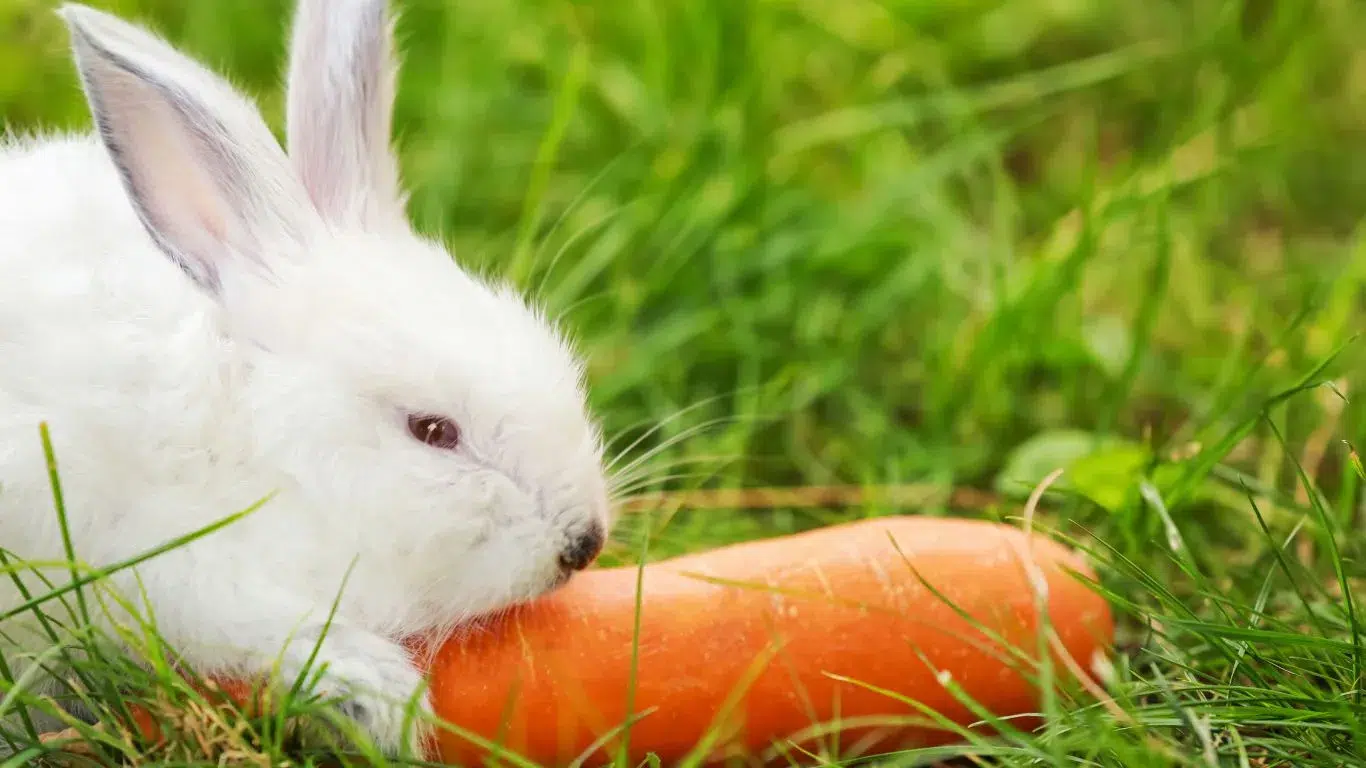
Benefits of Hay in a Rabbit’s Diet
Hay is a crucial component of a rabbit’s diet for several reasons:
- Fiber: Hay provides the necessary fiber for healthy digestion and helps prevent gastrointestinal problems.
- Dental health: Chewing on hay helps wear down a rabbit’s continuously growing teeth, preventing dental issues.
- Behavioral enrichment: Hay keeps rabbits mentally stimulated and satisfied, as they enjoy foraging and nesting in it.
Remember, a balanced and varied diet is essential for the overall health and well-being of your pet rabbit.
Join the Pet Planet Diaries
Sign up for our newsletter to get the latest tips, stories, and exclusive insights into the wonderful world of pets.
Closing Remarks
In brief, incorporating fresh fruits and vegetables like celery into a rabbit’s diet can provide them with additional nutrients and enrich their overall eating experience. It’s important to choose safe foods for rabbits, such as celery, and introduce them gradually to avoid any digestive issues.
Hay should be the main component of a rabbit’s diet as it promotes healthy digestion and dental health. Alongside hay, a moderate amount of vegetables, including celery, pellets, and treats can be included to provide variety and essential nutrients.
Remember to provide fresh water at all times and ensure a well-balanced diet for your rabbit’s optimal health and well-being. By following these guidelines, which include feeding rabbits safe foods like celery, you can create a nutritious and satisfying diet for your furry friend.
FAQ
Can rabbits eat celery?
Yes, rabbits can eat celery. Celery is a safe and healthy vegetable to incorporate into a rabbit’s diet. It has an increased moisture content, which promotes kidney and bladder health.
What vegetables are safe for rabbits?
A variety of vegetables are safe for rabbits to eat. Some examples include alfalfa sprouts, artichoke, arugula, asparagus, basil, beet greens, bell peppers, bok choy, broccoli, Brussels sprouts, cabbage, carrots, celery, chicory, cilantro, collard greens, cucumber leaves, dandelion greens, dill leaves, edible flowers, endive, escarole, fennel, flat edible Chinese pea pods, frisée lettuce, kale, mache, mint, mustard greens, parsley, radicchio, radish tops, red or green leaf lettuce, romaine lettuce, spinach, spring greens, summer squash, Swiss chard, turnip greens, watercress, and wheatgrass.
What fruits can rabbits safely eat?
There are several fruits that are safe for rabbits to eat, including apples, apricots, blueberries, cherries, currants, kiwis, mangos, melons, nectarines, oranges, papayas, peaches, pears, pineapples, plums, raspberry leaves, star fruit, and strawberries.
Are there any fruits and vegetables that rabbits should eat in moderation?
Yes, some fruits and vegetables should be served in moderation. Bananas should be limited due to their sugar content. Chard should be offered in small quantities. Flowering vegetables like cauliflower and broccoli can cause gas and should be given in limited amounts. Broccoli stems and leaves are allowed in small amounts. It’s important to monitor portion sizes and not offer excessive amounts of fruits and non-leafy green vegetables.
What fruits and vegetables should rabbits avoid?
There are several fruits and vegetables that are unsafe for rabbits and should never be part of their diet. Avocado is toxic to rabbits and can cause severe illness or death. Corn can lead to gastrointestinal stasis or blockage. Legumes like beans and peas are high in carbohydrates and can cause obesity and digestive issues. Iceberg lettuce contains lactucarium, which is harmful to rabbits. Onions, potatoes, rhubarb, wild-grown mushrooms, and certain other vegetables should also be avoided.
How do I introduce fruits and vegetables into my rabbit’s diet?
When introducing fruits and vegetables to a rabbit’s diet, it’s important to start with grass hay for at least 2 weeks to prepare the digestive system. Leafy greens should be introduced slowly, offering one type at a time every 3 days to observe how the rabbit reacts. The ideal mix is three types of greens per day. Fruits and vegetables should be washed and prepared in appropriate amounts. Excess should be removed after a few hours. Feeding tips include choosing organic produce, rotating greens, offering smaller pieces, considering the rabbit’s age, offering one new food at a time, providing fresh water, ensuring full-time food options, and providing chew toys.
What do wild and pet rabbits eat?
In the wild, rabbits primarily eat hay, accounting for 80-90% of their diet. They also consume grasses, weeds, vegetables, and flowers when available. Pet rabbits should have a diet similar to wild rabbits, with hay being the main component. Vegetables, pellets, and treats can also be included in moderation. Water should be provided in a bowl. It’s important to avoid foods that are harmful to rabbits, such as lettuce, cabbage, potatoes, and spinach.
What should I know about incorporating fruits and vegetables into my rabbit’s diet?
Rabbits can safely eat celery and a variety of other fruits and vegetables. Adding fresh foods to a rabbit’s diet provides additional nutrients, textures, and tastes. It’s important to know what fruits and vegetables are safe for rabbits and which ones should be avoided. Hay should be the main component of a rabbit’s diet, and vegetables, pellets, and treats can be included in moderation. Providing fresh water and a well-balanced diet is essential for a rabbit’s health.
